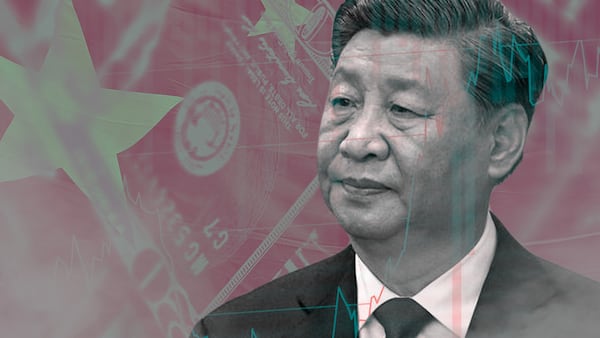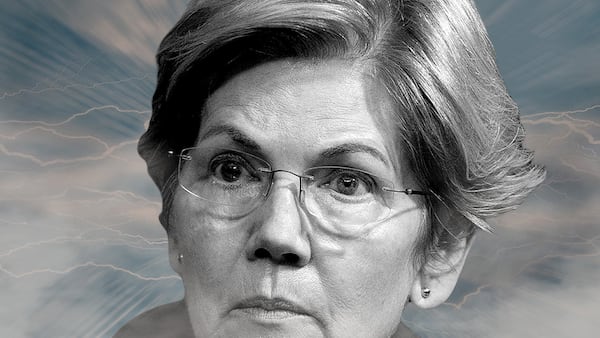- South Korea puts spotlight on investor protection.
- Wave of scams in Hong Kong drives regulators to impose new licensing rules.
- The Philippines runs out of patience with Binance.
East Asia’s approach to crypto regulation has long triggered whiplash in investors.
On the one hand, authorities have been keen to clamp down on the sector’s freewheeling trading culture.
China, for instance, not only banned market speculation but also prohibited Bitcoin mining. South Korean authorities are cracking down on stablecoins, and Philippine officials have lost patience with Binance’s failure to obtain a proper licence.
On the other hand, lawmakers in Asian nations clearly desire the wealth creation and innovation that springs from crypto ventures.
Singapore, for instance, has been trying to balance attracting crypto talent and protecting investors. With an apparent green light from Beijing, Hong Kong has also been trying to revive its once-vibrant crypto hub by supporting conferences and establishing clear guidelines.
“Countries keen to develop themselves as crypto hubs also face a tension between wanting to be welcoming to crypto players yet simultaneously signalling that they have strict regulatory frameworks,” HB Lim, managing director of the Asian Pacific region at BitGo, told DL News.
As the market turns more bullish, crypto firms may withdraw from countries whose regulatory frameworks are deemed too onerous. This can make it impractical to run a profitable business, Lim said.
Several nations are planning to implement rules and regulations in 2024. Here’s a rundown of the state of play:
China: Taking a hard line
Crypto mogul Justin Sun has been talking up Hong Kong’s opening as an “experiment” that could spur Beijing to loosen longtime bans on the industry.
That may be wishful thinking.
Chinese leaders remain focused on developing blockchain technology infrastructure without the crypto, i.e. without the speculation.
Beijing is also determined to combat crypto crime.
China repatriates hundreds of citizens each week from other nations in the region where organised crime gangs use secure compounds and coerced workers to run industrialised pig butchering and investment scams using crypto.
China’s anti-telecom fraud law extends to crimes committed by citizens outside of its territory, which means a Chinese national committing telecom fraud in Myanmar is subject to its law.
In November, the Ministry of Public Security said it was seeking public opinion on regulations that would standardise punishments for scammers.
Hong Kong: Runaway scams
Several crypto platforms in Hong Kong made headlines for suspected scams in 2023, including JPEX. Lawmakers and investors want accountability, and regulators and police officials are scrambling to deliver.
It won’t be easy, especially with Hong Kong leaders keen on solidifying the city as Asia’s cryptocurrency hub.
It doesn’t help that public misunderstanding of what regulations mean are rampant. A survey from Hong Kong University found that more than half the public believe a token being listed on the exchange means it’s approved by regulators.
‘Platforms that haven’t applied for a licence by the end of February or been rejected will be banned from operating in the city.’
Hong Kong is progressing towards implementing a regulatory framework for stablecoins and requiring exchanges to obtain licences.
The new licensing regime for virtual asset trading platforms will come into place next year. Platforms that haven’t applied for a licence by the end of February or have been rejected will be banned from operating in the city.
The Hong Kong Monetary Authority is also seeking to regulate stablecoins. A consultation paper published in December backed requiring licenses for stablecoin issuers. Regulators are seeking feedback until the end of February.
The Philippines: Taking on Binance
The Philippines Securities and Exchange Commission, or SEC, was set to introduce a legal framework for cryptocurrencies by the end of 2023, but it now looks like it may be pushed back to next year.
Intent on protecting consumers and cracking down on unregistered foreign crypto exchanges, the SEC recently issued a warning against Binance for operating without a licence. The agency plans to block access to the world’s top crypto exchange.
Thailand: Crypto taxes for digital nomads
Thailand’s days as a haven for crypto-trading digital nomads may be coming to an end.
The Revenue Department plans to tax overseas income, including cryptocurrency trading revenues, for individuals residing in the country for more than 180 days.
South Korea: Leaning on banks
South Korea is proposing new regulations around cryptocurrencies, focusing on customer protection.
A significant aspect of the proposal is directing banks to pay interest on customer crypto deposits and requiring virtual asset service providers, or VASPs, to store a majority of customer assets in cold wallets. NFTs will probably be excluded from the upcoming legislation.
South Korea is also exploring a pilot programme for a central bank digital currency, or CBDC, and considering a bill to track North Korean cryptocurrency activities. The pariah nation has garnered a record for supporting cryptocurrency heists to fund its nuclear programme.
Singapore: More regs on the way
Singapore is poised to introduce stricter regulations for crypto service providers. The Monetary Authority of Singapore aims to protect retail customers by limiting their exposure to potential harm associated with cryptocurrency trading.
Measures include prohibiting credit card payments for crypto services and banning incentives for trading.
Taiwan: Crypto ETFs may be on the way
Taiwan is working towards regulating the cryptocurrency industry. Lawmakers are drafting a special law to regulate offshore exchanges, with a focus on anti-money laundering compliance.
The proposed crypto law will require all cryptocurrency platforms in Taiwan to obtain permits.
Still, the country’s approach to crypto may change, depending on the outcome of the elections early next year.
A harder line could be the result from two crypto dramas: Almost 20 people have been arrested for betting on the election outcome using a protocol. And last month deepfakes of current President Tsai Ying-wen circulated, purportedly showing her telling citizens to invest in crypto.
Taiwan’s Financial Supervisory Commission, or FSC, has issued guidelines to improve investor protections, including separating customer assets from exchange assets. It is also considering allowing cryptocurrency ETFs.
Japan: A taxing headache
Japan’s approach to taxing crypto has long been a bugbear for investors. Companies must pay tax on unrealised gains if they are held for purposes beyond short-term trading.
In December, policymakers approved a proposal by the country’s ruling Liberal Democrat Party giving tax exemptions for these businesses, which could significantly boost Japan’s cryptocurrency industry. It will likely be debated by the Diet next year.
Callan Quinn is DL News’ Hong Kong correspondent. Have a tip? Contact the author at callan@dlnews.com









